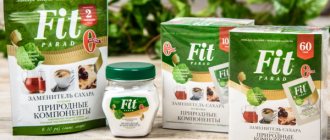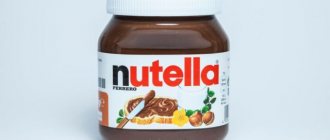Origin
Sweet grass is native to South America and has been eaten and used for medicinal purposes since ancient times. The stevia genus includes over 200 species of herbs and shrubs; their leaves are processed to produce an aqueous extract that serves as a sweetener.
Stevia honey is grown on an industrial scale - it is a raw material for the production of nutritional supplements and food products intended for patients with diabetes and for overweight people.
The plant contains substances with unique properties - stevioside, rebaudiosides. They provide the sweetness of honey herb, 200-400 times greater than the sweetness of sucrose, with zero calories. This allows stevia to be used to treat diseases such as diabetes, hypertension, and obesity.
Potential harm and contraindications
It is important to be careful when using this sweetener in food. In individuals with allergies to asteraceae, products containing stevia may cause an allergic reaction. Stevia is contraindicated for use in cases of hypotension, as it helps lower blood pressure.
Please note: if you overdo it with sweetener in food, you can get hypoglycemia - a serious condition associated with a sharp drop in blood glucose levels.
Individual intolerance to stevia is possible, which manifests itself in the form of dizziness, nausea, muscle pain, and a feeling of muscle numbness. Before including a sweetener in your diet, it is recommended to consult a doctor, especially if you have chronic diseases that require medication.
A specialist will determine whether it is safe to use stevia, since this sweetener cannot be used if a person is taking medications to lower blood sugar, drugs that normalize lithium levels, or medications for hypertension.
Beneficial features
Fitparad has a number of useful properties, the presence of which is confirmed both by laboratory studies and the experience of many consumers.
- Fitparad helps a lot when giving up regular sugar. The product, due to its taste, makes it much easier to avoid harmful food additives.
- The product has a positive effect on metabolism and carbohydrate metabolism in the body.
- All components of Fitparad are very quickly eliminated from the body and do not settle in the body in the form of fats.
- The product is recommended for diabetics. It does not increase blood sugar levels and prevents the development of complications in diabetes.
- Fitparad has a fairly small list of contraindications.
Our reader's opinion about the sugar substitute:
I have suffered from diabetes almost all my life. It’s very difficult when you can’t have anything sweet. I’ve been trying Fitparad for the second month. The attending physician does not see any deterioration yet, and life has become a little easier. Anna, 36 years old, Moscow
Non-calorie sweetener
The sweetener can be included in dietary confectionery products, but most often it is used in the following form:
- tablets - it’s convenient to calculate the dosage, the tablets dissolve quickly, if necessary, you can make a powder out of them by simply grinding them in a coffee grinder, the packaging is convenient to carry with you;
- syrup - made by boiling an aqueous extract, it is highly concentrated, so it is added to food in drops;
- powder - stevioside in almost pure form, the highest concentration of the substance should be added to food or drinks in minimal quantities at the tip of a knife;
- herbal teas - honey herb in filter bags is used to brew a sweet drink, which helps improve intestinal motility and get rid of excess weight.
Sweetener and baby feeding
There have been no studies on the safety of stevia for infants. Stevia has no fundamental contraindications during breastfeeding, but you should remember the possibility of an allergic reaction.
When considering whether this sweetener can be consumed during lactation, we must not forget that it can also sweeten breast milk, so it is important to be careful when using stevia in food. Thanks to stevia, a nursing mother has the opportunity to occasionally indulge herself in sweets without gaining extra pounds.
data-matched-content-rows-num=”9, 3″ data-matched-content-columns-num=”1, 2″ data-matched-content-ui-type=”image_stacked”
Fitparad reviews sweetener
The green packaging of Fit Parad sweetener says “natural”. Turn the box over and read the ingredients:
- erythritol
- sucralose
- rosehip extract
- stevizoid.
- Natural sweetener Fit Parad – composition, reviews, is it worth buying?
- Stevizoid
- Stevia and stevizoid - what's the difference?
- Erythritol
- Rose hip extract
- Sucralose
- Is Fit Parade safe?
- How can Fit Parad sweetener help us?
- See further:
- Reviews from our readers: (14)
- Sweetener Fit Parad: price, composition, benefits and harm Fit Parad
- Stevioside
- Erythritol
- Rose hip extract
- Sucralose
- The benefits of sweetener for people
- Doctor's review of the FitParad sweetener
- Doctor's review of FitParad: When sweets are good for you!
- Reviews from our readers: (11)
- Dietary sweetener Fit Parad No. 7 based on erythritol with rosehip and stevia extracts - reviews
- Sweetener Fit Parade is an excellent sugar substitute. Where can I buy. A recipe for really delicious du cupcakes. Why is he the best for me?
- ★Do you dream of losing weight, but can’t live without sweets? Don't know where to start? Just buy Fit Parad sugar substitute! Photo recipe for preparing an unusual delicacy★
- Is this sweetener natural and safe? Detailed analysis of the composition with photos here
- Do you want something sweet, but you can’t? And here it is POSSIBLE! Great replacement for sugar! I'm in love with him! The review includes a recipe for cheesecakes using a sweetener!
- THIS IS A FIND FOR THOSE WHO WATCH YOUR HEALTH, WEIGHT AND SLIMMER FIGURE! 100% replacement for sugar! + photo
- Do you love baking as much as I do? I eat homemade treats without harming my figure. I advise you to try the sweetener Fitparad No. 7)))) And of course, a delicious recipe from me!
- My savior! “FitParad No. 7” based on erythrol + delicious recipe
Separately, we should talk about natural and synthetic sweeteners. Sugar itself is not the healthiest food. If it is abused, it can cause significant harm to health - diabetes, obesity, metabolic disorders and caries.
Therefore, sweeteners, unlike food additives such as preservatives, food colors, flavorings (taste and aroma enhancers), have received the image of useful and “healthy” additives.
Various sweeteners and sweeteners are used, for example, in diet (low-calorie) foods and chewing gums advertised as health products. But don't sweeteners do more harm than good?
Types of sugar substitutes and sweeteners – are they all harmful?
All sweeteners and sweeteners can be divided into 2 categories:
- Synthetic sweeteners.
- Natural sweeteners.
There are many synthetic sweeteners and sweeteners: aspartame (the most common), saccharin, suclamate. All synthetic sugar substitutes are hazardous to health.
The harm of these sweeteners is difficult to overestimate - details are below (Diseases caused by sweeteners).
Their only advantage - low calorie content - upon closer examination turns out to be a disadvantage and leads to weight gain (Effectiveness of sweeteners for weight loss).
There are also natural sweeteners and sweeteners - for example, fructose, xylitol, sorbitol. The main disadvantage of natural sweeteners is their calorie content.
Types of sugar substitute mixtures
For example, sugar substitute FitParad No. 1 includes natural ones, Jerusalem artichoke extract), as well as synthetic ones (sucralose and erythritol). Stevia is known for its antimicrobial properties, strengthening the immune system and removing cholesterol from the human body. Experts recommend it as an excellent remedy for diabetes, pancreatitis and obesity. Jerusalem artichoke extract can strengthen the microflora in the intestinal area. It is also beneficial for the stomach because it contains inulin, which actively destroys bacteria.
Sucralose is useful because it has zero calories, and, despite the false opinion about synthetic sweeteners, it does not remain in the body. This allows you to use it during pregnancy and breastfeeding. FitParad No. 10 boasts a similar list of components. The only difference is the insignificant difference in caloric content and in the ratio to sugar. So, FitParad No. 1 in its 100 gr. has 3.19 kcal (1 g of mixture = 5 g of sucrose), and FitParad No. 10 - two kcal for the same weight of product (1 g of mixture = 10 g of sucrose).
The mixture of FitParad No. 1 and No. 10 is recommended not only in the fight against excess weight and during diet therapy, but also in terms of daily nutrition for diabetics.
FitParad No. 7 is not much different from the varieties that were presented above
In this regard, pay attention to the following: . the sweetener does not have a specific aftertaste, but the Jerusalem artichoke extract is replaced with rosehip extract, which is why its calorie content is higher (19 kcal); due to rose hips, it contains a vitamin complex such as vitamins C, P, K, PP, B1, B2 and E; the composition is characterized by a very pleasant taste, close to sugar; the likelihood of harming your health is extremely low.
- the sweetener does not have a specific aftertaste, but the Jerusalem artichoke extract is replaced with rosehip extract, which is why its calorie content is higher (19 kcal);
- due to rose hips, it contains a vitamin complex such as vitamins C, P, K, PP, B1, B2 and E;
- the composition is characterized by a very pleasant taste, close to sugar;
- the likelihood of harming your health is extremely low.
Fit Parad sugar substitute can be used in the culinary field for making baked goods or, for example, jam. In addition, this normalizes the process of calcium absorption.
When choosing which is better or which sugar substitute is good, it is very important to make sure that any of the ingredients are not harmful. This may be due to both allergic reactions and complications of diabetes.
It is also necessary to take into account that the dosage should not be more than 0.04 kg per 24 hours.
Pregnancy and sweeteners
Replacing sugar in the form of sweeteners is a great alternative to indulging in sweets without consuming excessive amounts of sugar. Sweeteners are 30-800 times sweeter than granulated sugar, with a calorie content of no more than four calories per gram.
In some cases, a pregnant woman is forced to switch to sweeteners when she has a history of diabetes mellitus; sometimes the cause is excess weight, which tends to increase in a delicate situation.
Of course, there are advantages to using sweeteners. For example, if you have a history of predisposition to diabetes, then in the second trimester their consumption is a necessary measure, since granulated sugar in large quantities affects metabolic processes in the body and can provoke impaired absorption of glucose.
Advantages of using sweeteners during pregnancy:
- An increase in blood glucose leads to the development of not only diabetes, but also other diseases - surges in blood pressure, brain pathologies, problems with the cardiovascular system. And during pregnancy, the female body cannot fully function, since it already experiences a double load;
- Sweeteners do not affect the condition of teeth, do not provoke the formation of tartar and do not leave plaque. In addition, the remaining sweetener in the oral cavity quickly penetrates inside and does not linger in the mouth.
Experts do not prohibit the consumption of sweeteners in a delicate situation, however, they do not recommend completely giving up sugar, since it is needed for normal intrauterine development.
Sweetener Fit Parade: benefits and harms, composition, reviews from doctors
Sweeteners are one way to make a diet more effective, as well as a solution for people who suffer from diabetes and cannot give up sweets.
There are many names on the market that are always popular and in demand among people. And one of them is Fit Parade.
The topic of this article is the benefits and harms of the Fit Parade sweetener, its composition, contraindications and other properties.
Composition and calorie content of Fit Parad sweetener
It does not contain many components: it is erythritol, sucralose, stevioside and rose hip extract. Each of them will be discussed below.
Erythritol
This is a completely natural element, it is healthy and is included in many vegetables, fruits and other common foods. Its main property in the product is stabilization. It is characterized by an extremely low level of nutritional value even in comparison with other low-calorie sweeteners. Widely used in the food industry, where it is obtained mainly from legumes.
Sucralose
Unlike erythritol, it is a purely artificial product that is synthesized from table sugar. It is usually indicated on the packaging as E955.
One of the properties of sucralose is that it is several hundred times sweeter than sugar, so in large quantities it can be harmful.
Previously, the substance was considered unsafe, but recent clinical studies indicate the absence of significant side effects and harm. Due to its properties, it is widely used in the manufacture of confectionery products.
Stevioside
Aka E960. The sweetener is synthesized from a plant called stevia. In terms of properties and benefits for the body, it is extremely similar to erythritol. Stevioside is the reason why the supplement is harmful for pregnant women. Previously, mutagenic properties were attributed to the element, but this is not confirmed in modern science and medicine.
Rose hip extract
A natural ingredient characterized by a high content of beneficial microelements. An extract from the plant of the same name is widely used in the production of cosmetics and medicines and has many beneficial properties.
Types of sweeteners Fit Parade and their differences
The product has many types, each of which has its own taste and composition variations. Main types of additives:
- Fit Parad #1 - in addition to the main components, there is Jerusalem artichoke, replacing rosehip extract.
- Fit Parad #7 - only stevioside, rose hips, sucralose and erythritol.
- Fit Parad #9 - Contains many other supplements. Among them are baking soda and tartaric acid.
- Fit Parad #10 - identical composition to #1, but twice as sweet as #1 and #7
- Fit Parad #11 - contains pineapple extract, papain and inulin.
- Fit Parad #14 - made only from erythritol and stevia.
Which sweetener is better to choose for diabetes?
Any type of Fit Parade can be chosen for diabetes, since all of them are harmless due to the fact that the ingredients of the product do not affect blood glucose levels in any way. However, it is recommended to use those names that include inulin. Its benefits for type 2 and 3 diabetes have been proven by clinical studies.
Benefits of Fit Parad sugar substitute
The additive has a number of pronounced advantages. The benefits are manifested in the following features:
- Rapid elimination from the body. The components of the product do not remain in the body, do not form subcutaneous and visceral fat, and do not cause harm.
- Beneficial effect on metabolism and carbohydrate metabolism.
- Safety. Fit Parade is harmless for diabetics. The product does not affect blood glucose levels and does not provoke diabetic complications.
- There are few contraindications and side effects compared to other sweeteners, and many beneficial properties.
However, the main benefit of the supplement is that it helps you quickly and comfortably give up sweets during a diet, which makes it an indispensable and healthy component of your daily diet.
Norms and features of using the Fit Parad sweetener
The additive has many varieties and each of them has its own norms of beneficial consumption. However, on average, one gram of sweetener is equivalent to one gram of sugar. It should not be consumed in quantities greater than forty-five grams per day, as this may be harmful. The acceptable dosage is indicated on the packaging of each specific type of product.
Is Fit Parade allowed for children and pregnant women?
The product is harmful for pregnant women. This is due to the fact that during pregnancy it is recommended to give up any sweets. The additive, despite the fact that it is much safer than sugar, can provoke obesity.
The female body during pregnancy is characterized by greater sensitivity.
However, opinions about the benefits and harms of the Fit Parade sweetener among specialists vary, so the supplement can be consumed in small quantities if permitted by the doctor who is seeing the expectant mother.
For children and adolescents up to sixteen years of age inclusive, the supplement is permitted, but it should be used with great caution. Synthetic components, despite their benefits, can negatively affect the child’s body during growth, as well as provoke allergic reactions and cause other harm.
Fit Parade while breastfeeding
The use of the substitute is contraindicated during breastfeeding. The fact is that some components of the supplement can pass into breast milk, which can be harmful to the baby’s health.
Its side effects can be tolerated normally by an adult, but for a baby it is much more harmful.
In addition, allergies may appear, which at an early age can lead to serious consequences.
Side effects and contraindications
Despite the beneficial properties and the fact that the mixture is considered quite safe, there are still some contraindications and evidence that it can cause side effects. These include:
- Flatulence, diarrhea and other signs of improper functioning of the gastrointestinal tract.
- Allergic reactions to additive components.
The supplement may be harmful to:
- People of retirement age, like any other sweeteners.
- Children and adolescents under sixteen years of age.
- Pregnant women, nursing mothers.
The list of contraindications is not so long, but it is worth considering it carefully. In addition to the above categories, the additive will harm those who are allergic to one or another ingredient in the mixture. At the first sign of an allergic reaction, it is recommended to consult a doctor. Also, individual components of the supplement are incompatible with a number of medications.
Important! Harm from the product may occur if its use is not rationed, so it is important to adhere to the standard dosage in order to get the maximum benefit from the supplement.
Doctors' opinion about the sweetener Fit Parade
Dietitians agree that Fit Parade can completely replace sugar and is useful for weight loss. It has no significant contraindications; its composition includes only natural beneficial ingredients.
Most restrictions relate only to age. For diabetics, it is recommended to consult with your doctor before including any sweetener in your diet.
The degree of benefit depends on the individual properties of the body and the patient’s medical history (personal and family).
Conclusion
The benefits and harms of the Fit Parad sweetener depend on the method of application.
It will be a good choice for those who are watching their figure or for whom the use of glucose is contraindicated for medical reasons.
The mixture is made from natural raw materials; its properties are much healthier and safer than sugar. In the absence of contraindications, Fit Parade will become a complete element of the daily diet.
Consumer Reviews
Alexander Boryakov, Tula I have been suffering from diabetes for quite some time. The diagnosis does not allow me to eat sweets, but over the years I have not been able to get rid of this habit. Not long ago I learned about Fit Parade and consulted with a doctor. The doctor gave permission, life became much easier, and the benefits were obvious. Anastasia Kiryaeva,
Krasnoyarsk I decided to take a closer look at my figure, but I have a problem - I can’t give up sweets. They advised to replace it. For more than six months now I have been eating only Fit Parade and going on a diet, successfully losing kilos. After the diet, I think not to return to sugar in order to keep in shape. The taste of the substitute is no worse, and it’s healthier.
Of course, it costs more than store-bought sugar. Did you find this article useful? Not really
Source: https://zaslonovgrad.ru/poleznoe/zamenitel-sahara-fit-parad-polza-ili-vred-pobochnye-effekty
Allowed sweeteners for pregnant women
Before choosing a sweetener, you need to check its calorie content and consider the possible health risks. Conventionally, all products are divided into two groups. The first category includes those that contain a lot of calories, the second - those without calories.
Substances that belong to the first group provide the body with useless calories. In other words, they themselves are not high in calories, but when consumed along with some food, they increase the caloric content of it, while not providing the necessary vitamins and mineral components.
During pregnancy, they can be consumed very rarely and in small dosages, when they do not contribute to the gain of extra pounds. If you have diabetes, you should avoid such products altogether.
The first type of sweeteners includes:
- Fructose.
- Sucrose.
- Honey.
- Dextrose.
- Corn sweetener.
- Maltose.
Sugar substitutes that can be consumed in a delicate situation include aspartame and acesulfame potassium. It is allowed to add sucralose to food during pregnancy.
Acesulfame potassium can be taken in small dosages. Excessive consumption can lead to various consequences in the future. This sweetener is used to make confectionery, carbonated drinks, and jelly desserts.
Sucralose is an artificial sugar substitute with no calories. The additive is used instead of simple refined sucrose, since it does not affect the glucose content in the human body and does not contribute to excess weight gain. Sucralose is also allowed to be included in the menu during breastfeeding.
This sugar substitute is used in the following foods:
Prohibited sugar substitutes
Various sweeteners of the Sladis brand are produced. They differ in composition and taste. There are sugar substitutes with additives - fructose, lactose, tartaric acid, leucine and other substances. As for use during pregnancy, it all depends on the specific product.
Some packages of sweeteners clearly state that use during pregnancy is prohibited, regardless of trimester. For others there is no such contraindication.
Therefore, you need to read the information carefully.
Rio Gold sweetener is the highest quality sugar replacement.
But it is not suitable for pregnant women because it contains the following components:
- Sodium cyclamate.
- Saccharin.
- Wine acid.
- Baking soda.
According to numerous studies, such a composition can provoke the development of oncological processes in the body, in particular, bladder cancer and pancreatic tumors. Possible harm includes problems with pregnancy (this is an assumption, clinical studies have not been conducted).
It should be noted that in many countries cyclamate is prohibited in the food industry; the substance cannot be added to drinks and food. Therefore, we can conclude that the component poses a danger to both mother and child.
Prohibited sweeteners include saccharin. Nowadays it is rarely used, but can be found in some foods and drinks. During pregnancy, the substance passes through the placental barrier and accumulates in the tissues of the fetus.
An expert will tell you in detail about sweeteners in the video in this article.
We weigh the pros and cons - is it possible to use a sweetener during pregnancy?
Pregnancy is a natural state of the female body.
But in order to carry the fetus to term normally and give birth to a full-fledged baby, the health of the expectant mother requires careful attention. This is especially true for nutrition. It is better that a woman’s diet includes only natural substances and products.
Accordingly, any synthetic analogues must be taken very carefully. For example, is it possible to use a sweetener during pregnancy, or is it better to refrain from using it?
There are different opinions. It all depends on the indications, the woman’s health status, individual tolerance to specific chemical compounds and other factors.
Can pregnant women use a sweetener?
When carrying a child, the expectant mother always tries not to harm him in any way. And to do this, she needs to know exactly which substances are less dangerous. In particular, we are talking about sweets that bring little benefit, but many cannot do without them.
Here are the options when replacing sugar with some analogues is still justified:
If a woman has simply gained a little weight, then this is not an indication for the use of sweeteners. It is better to adjust your diet and perform special exercises. This will only benefit both the mother and the unborn baby.
You should not switch to sugar substitutes without first consulting your doctor, as this may have a negative impact on the child’s development.
What sweeteners can be consumed during pregnancy?
Currently, there are many substances and compounds that have a sweet taste. Not all of them are harmless. This is especially important if the woman who plans to take sugar substitutes is expecting a child. The main principle that the expectant mother should follow is the naturalness of the product.
Here is a list of sweeteners isolated from natural raw materials:
- Stevia is a plant colloquially called “honey grass.” More than 200 times sweeter than regular sugar. Contains many microelements, vitamins and amino acids necessary for pregnant women. Normalizes heart function, strengthens blood vessels, regulates blood glucose and cholesterol levels, removes radionuclides, improves immunity, restores digestion and the nervous system, and is a strong sedative. Scientists have repeatedly checked whether this substance does any harm. But so far nothing like this has been revealed;
- Xylitol is a sweetener that is made from the wood of certain hardwoods, fruits, berries and other plant components. It is not inferior in sweetness to regular granulated sugar, but its calorie content is even higher. Xylitol restores the microflora of the mouth, prevents caries from developing, and has bactericidal properties. The main contraindication is problems with the gastrointestinal tract;
- fructose is a popular sweetener isolated from berries and fruits. Tones, gives vigor and energy. Not recommended for women with heart disease;
- Novasvit . Made from natural ingredients, contains fructose and sorbitol, vitamins C, E, P, and minerals. This drug has no special contraindications and can be taken during pregnancy. The main thing is to follow the dosage.
There are other natural sugar substitutes that are not so common. And it is not at all necessary to use synthesized substances. The same honey is very useful for pregnant women, but only for those who do not suffer from diabetes.
Natural sweeteners are safer than artificial ones, but they also should not be taken uncontrollably, especially during pregnancy.
Sugar substitutes contraindicated for expectant mothers
There are substances that should not be consumed during pregnancy. As a rule, these include compounds obtained chemically and having nothing to do with natural products.
Here is a list of the most common sweeteners that expectant mothers should avoid:
- Sodium cyclamate is a synthetic substance. Often used in the food industry under code E952. It is prohibited in the USA, as its toxicity and carcinogenic effects have already been proven. It is not recommended not only for pregnant women, but for all people in general;
- saccharin is a fairly common product. It is strictly contraindicated during pregnancy, as it freely passes through the placental barrier and negatively affects the development of the fetus. It may also cause bladder cancer;
- Sladis . Especially popular among Russian diabetics. Contains vitamins and minerals necessary for this disease. One tablet is approximately equivalent to a teaspoon of sugar. Not a bad drug, but pregnancy in any trimester is among the contraindications;
- FitParad is one of the most popular sweeteners; it has a complex composition and is made from natural and synthetic substances. Not recommended for pregnant and lactating women. Long-term use may cause stomach problems;
- Milford . It contains saccharin and sodium cyclamate. It should not be taken during the entire period of pregnancy and lactation, as the substance is harmful to the development of the fetus and to the already born child. It has carcinogenic and toxic effects.
When choosing any sweetener, the expectant mother should read the instructions, reviews and consult a doctor.
In addition to the usual contraindications, the most important of which is pregnancy, there is also individual intolerance to the drugs themselves and the individual components that make up them.
Directions for use and precautions
There are no completely safe sweeteners. This is especially important to consider during pregnancy. But, if it is better for expectant mothers to completely forget about synthetic sugar substitutes, then they can take natural ones.
The main thing is not to exceed the daily dosage established by the manufacturer (maximum values are indicated here):
- stevia – 40 g;
- xylitol – 50 g. If a woman takes more than this amount, there will be no serious poisoning. The worst thing is diarrhea;
- fructose – 40 g. If you regularly exceed this dosage, diabetes, problems with the heart and blood vessels may develop;
- Novasvit – 2 tablets.
Thus, sugar substitutes should not be eaten instead of sweets. The maximum you can afford is to periodically drink tea with them. Otherwise, the woman risks harming herself and the unborn baby.
Reviews from doctors
Among nutritionists, the question of the safety of sweeteners is constantly raised.
The problem of toxicity of sweeteners and the ability to cause cancer is especially acute.
The results of these debates are mixed. There is no absolutely accurate and scientifically based data on the dangers of such substances and compounds. The only exception is aspartame, since data on its toxicity have been recorded.
Practitioners recommend using sugar substitutes with caution. Especially when it comes to pregnant patients. If a woman cannot do without them, doctors advise choosing natural sweeteners.
In most reviews, such recommendations sound like a compromise. Doctors do not approve of their use. But at least natural sweeteners do not cause such negativity among specialists as synthetic ones.
As for the opinions of women themselves, they largely relate to the taste qualities of a particular product. On forums where expectant mothers communicate, it is rarely discussed whether it is possible to take such substances in their condition.
on this topic
Can pregnant women use a sweetener? Answer in video:
Of course, during pregnancy you can completely avoid any sweeteners. But, if a woman cares so much about her health, she will have to exclude sugar itself from her diet, since it is also harmful.
A complete abstinence from sweets is extreme. Among sweeteners there are those that will not harm either the mother or her unborn child. In any case, consultation with a specialist is necessary.
Source: https://diabet24.guru/dieta/saxarozameniteli/mozhno-li-pri-beremennosti.html
Sugar substitute Fit Parad
Our readers successfully use DiabeNot to treat joints. Seeing how popular this product is, we decided to bring it to your attention. Read more here...
Fit Parade sweetener is popular among people. Manufacturers produce different types of this sweetener, which differ in their composition and release form (syrup, tablets, powder). However, it is important to know that failure to comply with dosages when taking a sugar substitute and ignoring contraindications is fraught with undesirable consequences. Pregnant and lactating women should not take Fit Parade. Due to these restrictions, it is recommended that you consult your doctor before purchasing this sweet supplement.
Types of mixtures, composition and calorie content
Fit Parade products are produced in different collections, the differences of which lie in the proportions and composition of the main ingredients. In terms of calorie content, fit parade contains less sugar, as a result of which it is prescribed to people who suffer from diabetes and obesity. The following mixtures are distinguished:
- Fitparad 1. Consists of erythritol, sucralose, stevioside (stevia) and Jerusalem artichoke extract. Available in the form of doy-packs (400 grams) and cardboard boxes (200 grams).
- Fit Parade 7. Includes erythritol, sucralose, stevioside and rosehip extract. Produced in bags (400 g), cardboard boxes (200 grams), cans (180 grams) and in the form of sachets in the amount of 60 pieces.
- Fitparad 9. It is made on the basis of lactose and sucralose, stevioside, tartaric acid and L-leucine, baking soda, croscarmellose, Jerusalem artichoke extract and silicon dioxide. This sugar substitute comes in tablet form, which are packaged in 150 pieces.
- Fitparad 10. Consists of erythritol, sucralose, stevioside and Jerusalem artichoke extract. It is produced in the form of a doy-pack (400 grams), cans (180 grams) and sachets (60 pieces).
- Fitparad 11. Includes inulin, sucralose, stevioside, papain 300 IU and pineapple extract. Available in 220 gram bags.
- Fitparad 14. Made on the basis of erythritol and stevioside. This table sweetener is produced in doypacks (200 grams) and in the form of sachets in the amount of 60 pieces.
- Fitness parade "Erythritol". It consists of erythritol and is available in cardboard boxes of 200 grams.
- Fitness parade "Svita". Made from stevioside. Produced in canned form (90 grams).
Return to contents
The benefits of fitness parade
This sugar substitute can even be used for sweet baked goods.
Useful properties of fitparad include:
- Taste characteristics. Fit parad tastes virtually no different from regular sugar.
- Resistance to high temperatures, which is an advantage when using this sweetener in sweet baked goods.
- Fit Parade helps people cope with sugar addiction and is indicated for diabetes. Regular consumption of the mixture reduces the body's need for refined sugar.
- Availability of use and variety of choice.
- Low calorie content. As a result, fit parade helps in the fight against excess weight.
Return to contents
Harm of sweetener Fit Parade
Harm to the human body after taking fit parade occurs after uncontrolled consumption of the mixture and if the instructions for the sweetener are not followed. This sweetener contains sucralose, which is a synthetic substance and can negatively affect the health of a certain person (this happens with sucralose intolerance). Also, you should not take the Fit Parade sweetener at the same time as taking medications; such use can be harmful to the human body and provoke undesirable consequences. Particular care must be taken when using fit parade for children. Taking this sweetener is contraindicated:
- during pregnancy;
- when breastfeeding;
- elderly people with pathologies in the kidneys and liver;
- people suffering from allergic reactions (sensitivity to the components of the product).
When choosing a Fit Parade sweetener, you must carefully study the instructions, pay particular attention to contraindications and dosages. Improper intake of such a mixture is harmful to the human body. If you have any questions, it is better to consult with your doctor, who will select the optimal sweetener for a particular person, taking into account individual characteristics.
Contraindications for use
Fitparad is positioned as an absolutely safe supplement, but still has some contraindications.
- It is not recommended to use during pregnancy, as some substances included in the composition may adversely affect the intrauterine development of the fetus.
- Not recommended for use while breastfeeding. This applies to any sweeteners.
- According to some reports, excessive use of the supplement may cause stomach problems.
- Fitparad, like all sweeteners, is not recommended for use by people over 60 years of age.
- An allergic reaction may occur to some components of the product.
If you systematically use any sweeteners, it is recommended to consult a nutritionist. Each case is individual, and only a specialist can choose the right diet, taking into account all the characteristics of the body.










